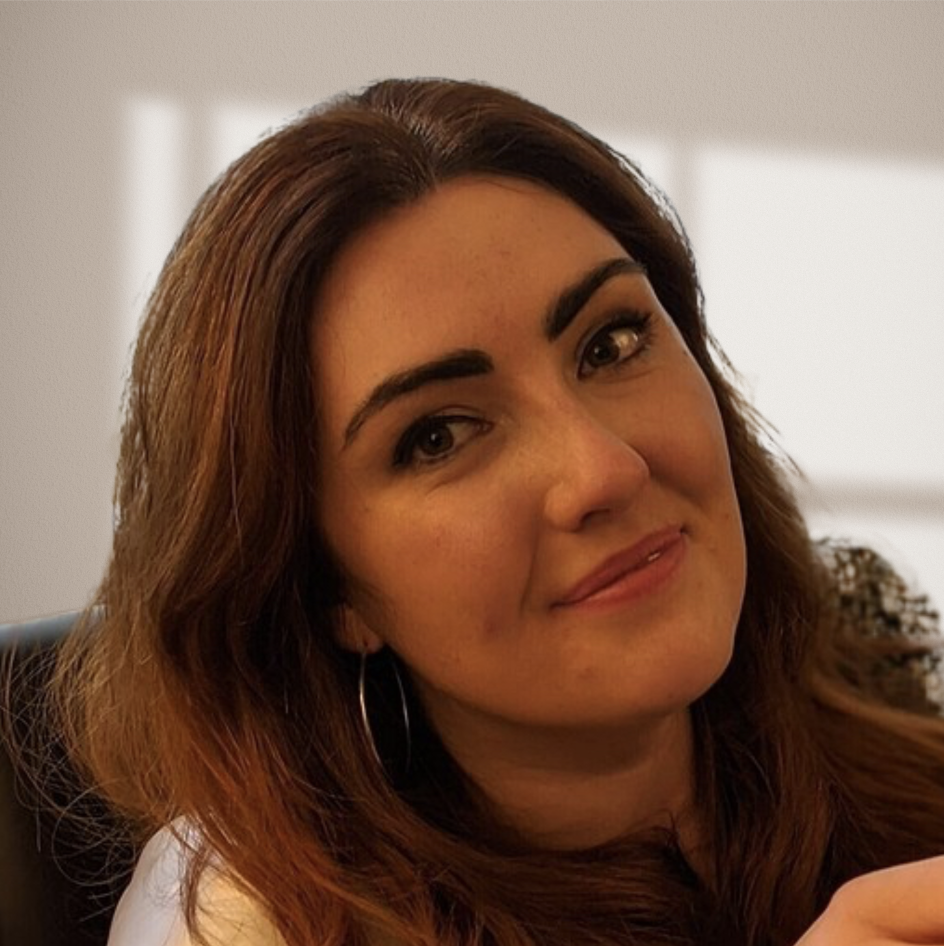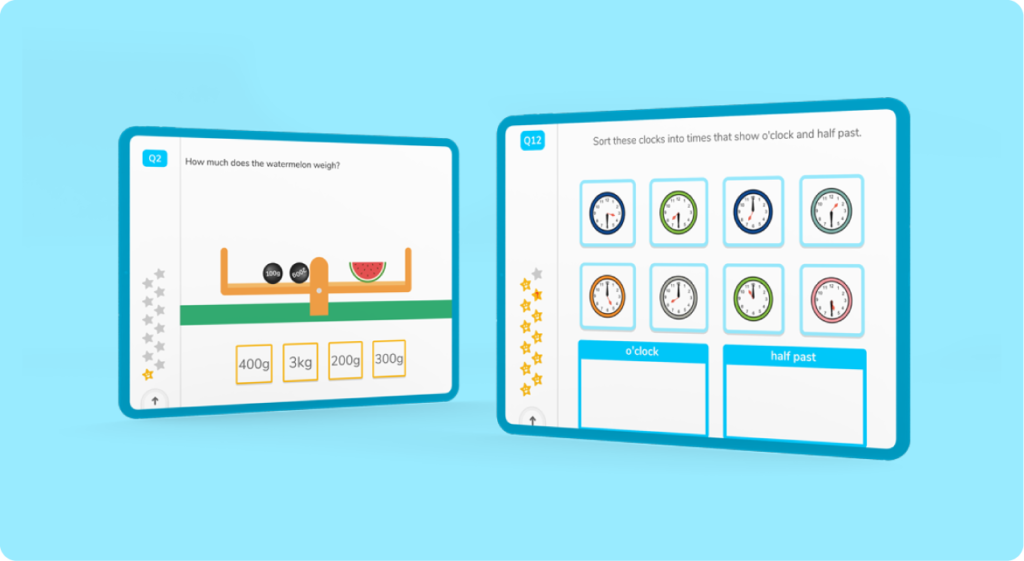

Learn what’s taught in the KS3 maths curriculum which spans Years 7-9 across 6 maths topics covered throughout secondary school.

Author
Mhairi Sim
Published
August 2024


Learn what’s taught in the KS3 maths curriculum which spans Years 7-9 across 6 maths topics covered throughout secondary school.

Author
Mhairi Sim
Published
August 2024


Learn what’s taught in the KS3 maths curriculum which spans Years 7-9 across 6 maths topics covered throughout secondary school.

Author
Mhairi Sim
Published
August 2024


Key takeaways
Table of contents
The KS3 maths national curriculum takes learners through their first three years of high school. The work learners complete from Year 7 through to the end of Year 9 sets them up for the GCSE learning and exams ahead.
Unlike the Key Stage 2 maths curriculum, the learning points for KS3 maths are not strictly outlined on a year-by-year basis. Instead, there is a set of requirements that must be taught throughout Key Stage 3, meaning that schools can pace the work across Years 7, 8, and 9 as they see fit.
Read on to find out exactly what maths concepts are covered in the national curriculum maths KS3 programme. We’ll take a look at a year-by-year breakdown of learning, and find out how you can help your children as they begin their secondary school journeys!
There’s a lot of learning packed into the three years spent on the KS3 maths curriculum. Below are the key learning points across the six main maths topics that should be covered by the end of Year 9:
Unlock unlimited maths questions
Put your skills to the test with fun exercises + maths games that are proven to boost ability!
DoodleMaths is an award-winning maths app that’s aligned to the Year 9 maths curriculum and proven to double a child’s rate of progression with just 10 minutes of use a day!
Filled with fun, interactive questions covering the whole curriculum, it creates each child a unique work programme tailored to their needs, boosting their confidence and skills in maths. Try it for free today!

For a full list of the statutory learning objectives for the KS3 maths national curriculum take a look at the official KS3 maths programme of study as laid out by the Department of Education.
Try DoodleMaths for free!
Select a year group
While there’s no fixed year-by-year curriculum, the NCEMT (National Center for Excellence in the Teaching of Mathematics) has devised a sample curriculum for each year group as guidance.
There’s a lot packed into the maths national curriculum KS3 programme, but what does that mean for each year group? Let’s take a year-by-year look at what the main focuses in each year group will be.
In Year 7 maths, students will kick off their KS3 maths curriculum by building on the skills learned in primary school to complete more complex number work. This includes using integers and prime factorisation, as well as developing their working knowledge of algebra.
Everything that learners will cover this year is laid out in our Year 7 curriculum guide! You’ll find a detailed look at what kids will cover in each area of maths, as well as tips on how to help your learners out as they start secondary school!
Algebra is the star of the show in Year 8 maths! Students will dive deeper into linear equations, simplifying expressions, and questions that require two or more steps to solve.
They’ll also apply their prior learning of multiplicative relationships to solve problems regarding ratios, proportion, and rates of change.
Everything you need to know about this year can be found in our Year 8 maths curriculum guide!
In their final year studying the KS3 maths national curriculum, all prior learning is brought together as they tackle the Year 9 maths curriculum!
They’ll apply several different skills from across the curriculum to multi-step problems (e.g. using their knowledge of ratios or multiplicative relationships and algebra together for example).
This year students are also introduced to more complicated trigonometry skills, such as Pythagoras’ Theorem. This can seem daunting, especially when learners ask for homework help. Thankfully we’ve a list of tips on how to help your Year 9 learner that don’t require you to have super maths skills!
The national curriculum maths KS3 programme does not include any formal statutory assessments. However, this doesn’t mean the pressure is totally off!
Teachers will still assess their students throughout the years to keep tabs on their learning progress. This will help to address any issues or misunderstandings that can creep in and affect future learning.
Getting core maths concepts under their belts and develpping good study and revision habits will have a big impact on learners. This is without a doubt one of the best ways you can help your child with the KS3 maths national curriculum!
Helping them to build routines to keep up with homework and revision is a fantastic place to start. Have them use timetables or planners to organise their week and even let them create a cosy study space to help keep them focused.
Encourage students to spend some of that revision time going over the basics. Much of what they’ll learn throughout the KS3 maths curriculum will build on previous learning. Even brand new concepts they’ll come up against like Pythagoras’ Theorem are rooted in prior learning. So refreshing themselves on core concepts can really help at this stage.
Our Doodle Learning maths app is another great way for learners to brush up on any area of their maths learning. The app will design a tailored programme for each learner of interactive maths activities and games that are fully aligned with the KS3 maths curriculum!
Whether your learners are at the start of their KS3 maths national curriculum journey, or are approaching the end of Year 9, there’s lots of learning to cover! We’ve outlined the key skills they’ll learn and given you some ideas on how to help your kids out this year.

Parents, sign up for a DoodleMaths subscription and see your child become a maths wizard!

Lesson credits

Mhairi Sim
Mhairi is an experienced teacher, freelance writer and parent. After completing her bachelor's degree in Psychology, she graduated as a teacher from the University of Strathclyde. She then built experience teaching across KS1 and KS2 throughout the UK. In addition to working in mainstream education, Mhairi specialised in the additional support needs sector, including social, emotional, and behavioural support.

Mhairi
Mhairi is an experienced teacher, freelance writer and parent. After completing her bachelor's degree in Psychology, she graduated as a teacher from the University of Strathclyde. She then built experience teaching across KS1 and KS2 throughout the UK. In addition to working in mainstream education, Mhairi specialised in the additional support needs sector, including social, emotional, and behavioural support.
Book a chat with our team
If you’d like to use Doodle’s browser version, please visit this page on a desktop.
To log in to Doodle on this device, you can do so through our apps. You can find out how to download them here: